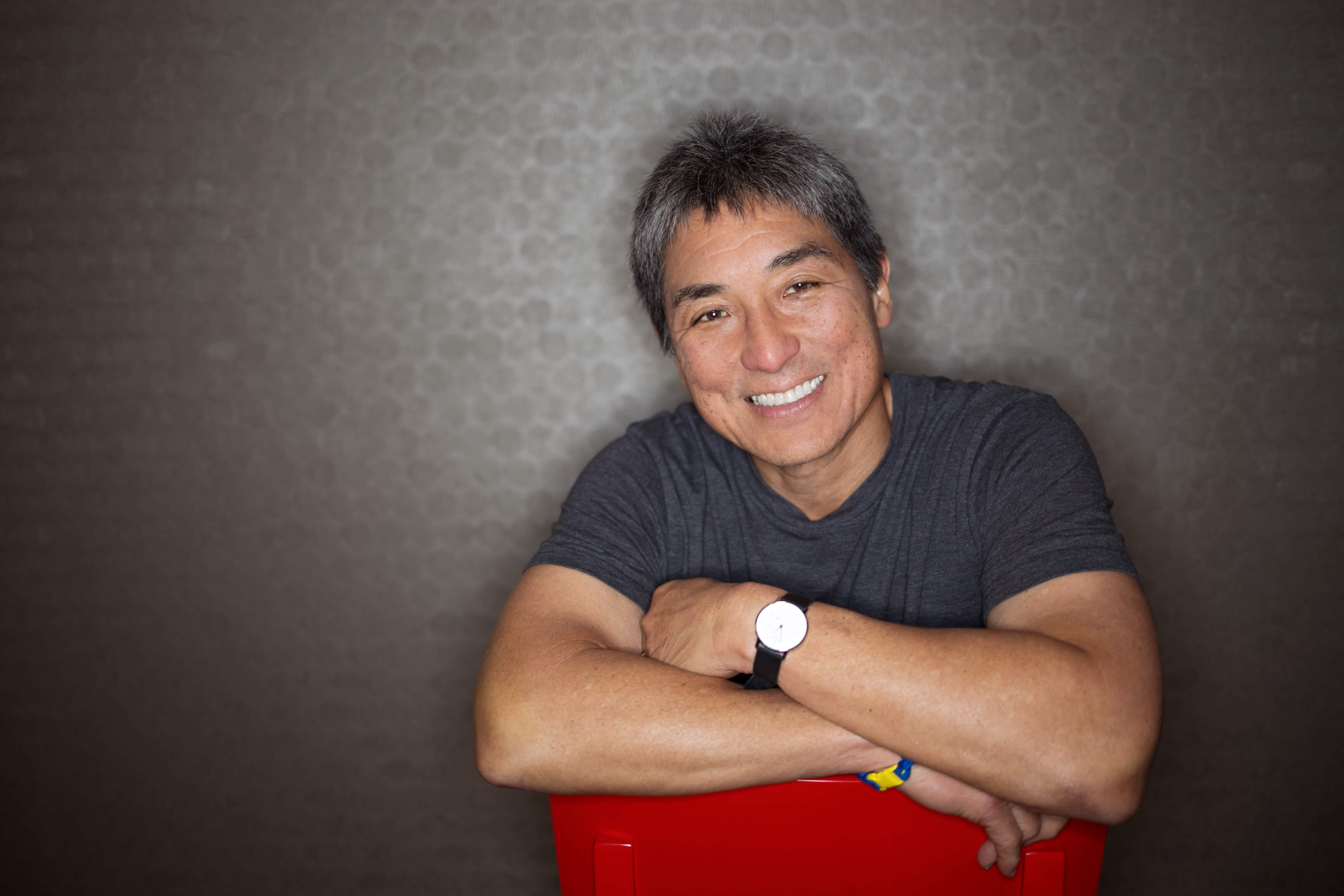Guy Kawasaki of Canva
Guy Kawasaki
Guy Kawasaki:
Evangelist, Author, Speaker
This article and picture is provided by Creativida.org.
You can refer to the original here.
Guy Kawasaki is the chief evangelist of
Canva, an online graphic design tool that democratizes design. Additionally, he
is on the board of trustees for the Wikimedia Foundation, a brand ambassador
for Mercedes Benz USA, and an executive fellow of the Haas School of Business
(UC Berkeley). He helped Steve Jobs change the world as the chief evangelist of
Apple. He has extensive experience in the tech industry as an evangelist,
entrepreneur, and investor. He shares his wisdom with people through giving
speeches and writing books (The Art of the Start, APE: Author, Publisher,
Entrepreneur, Enchantment, and nine other books). He is without a doubt one of
the most inspiring speakers in the world. In this interview, Guy Kawasaki tells
us about the essence of his life.
Interview
-----For
those who are not familiar with you, please tell us more about you. You have
founded several companies, gained successful exits, and worked in huge
corporations. How did you come to be an evangelist and what is involved in the
role?
Evangelism comes from Greek words meaning
“bringing the good news.” Evangelists bring the good news about a product or
service. I originally brought the good news of Macintosh—how it increased
people’s creativity and productivity. Now I am the chief evangelist of Canva,
an online, tool. I’m bringing the good news about how graphics-design Canva can
democratize design.
-----You
engage in a number of keynote speeches every year and you have written more
than 10 books. As a result, you often get a lot of media exposure. What
motivates you to empower people?
It’s my calling. It’s what I enjoy doing. I
want to leave this earth slightly better than when I got here by empowering
people.
-----What
is the greatest moment you have had in your career and why?
My greatest moment was probably the three
years I worked in the Macintosh Division of Apple. We changed the world with
Macintosh—it was enormously satisfying to help democratize computing.
-----When
you start something new, like starting a new company, what is the first thing
you think of and what is the first step you actually take?
The first thing to think of and do is to
build a prototype and get it into the hands of people. This is more important
than planning, pitching, and forecasting.
-----You
have a deep understanding of social behavior. Do you think people can truly
evaluate the value of content or do they just follow what others follow? What
do you need to remember when you deal with a large number of people?
People make instant judgements about the
quality of content. The clues are the inclusion of an attractive graphic or
short video, bulleted or numbered lists, and subheads. These are all functional
clues—but they are good indicators of the quality of the content.
The social clues are also good indicators
of quality. Social clues include the number of “likes,” comments, and retirees.
By considering the functional and social clues, it’s easy to make a quick
judgment about the quality of content.
-----Most
people know the price of everything but the value of nothing. The price is
visible and the value is invisible. Normally the majority of people cannot
understand the value of great visions. People can understand figures given by a
market as a price. How can you convert the value into the business?
I would not say that value is invisible.
Value is the totality of the costs and the benefits. The costs are not only
monetary but also support and training. The benefits are not simply getting the
job done but also the pleasure and coolness of working with a product or
service.
-----What
does “be successful” mean to you? Who is the first person you can think of when
you hear the word successful and why?
Success means making the world a better
place. It’s not necessarily tied to money. Teachers, for example, make the
world a better place and are highly successful in my book.
-----What
is the greatest advice you have ever received and who gave it to you?
The best advice I ever got was to never ask
people to do something that you wouldn’t do. This is applicable to customers,
employees, and partners. Unfortunately, I don’t remember who gave me this
advice!
-----If
you could make a call to 20-year-old Guy Kawasaki, what kind of advice you
would give to him?
I wish I had a bit more engineering in my
background so that I understood product development better. In other words, I
could tell when programmers are lying to me. I would also have lived in other
countries besides the US when I was young.
-----If
you could leave one message to make the world better, what would your message
be?
The ultimate way to judge people is whether
they made the world a better place. Everything else pales in comparison to this
goal.
Are you a startup, investor or corporation? Or do you just enjoy talking about startups? There are many ways that you can work with TechShake.
We’d love to hear from you!